1420 people reached on Lassi with Lavina FB page – 154 engagements FB Insights
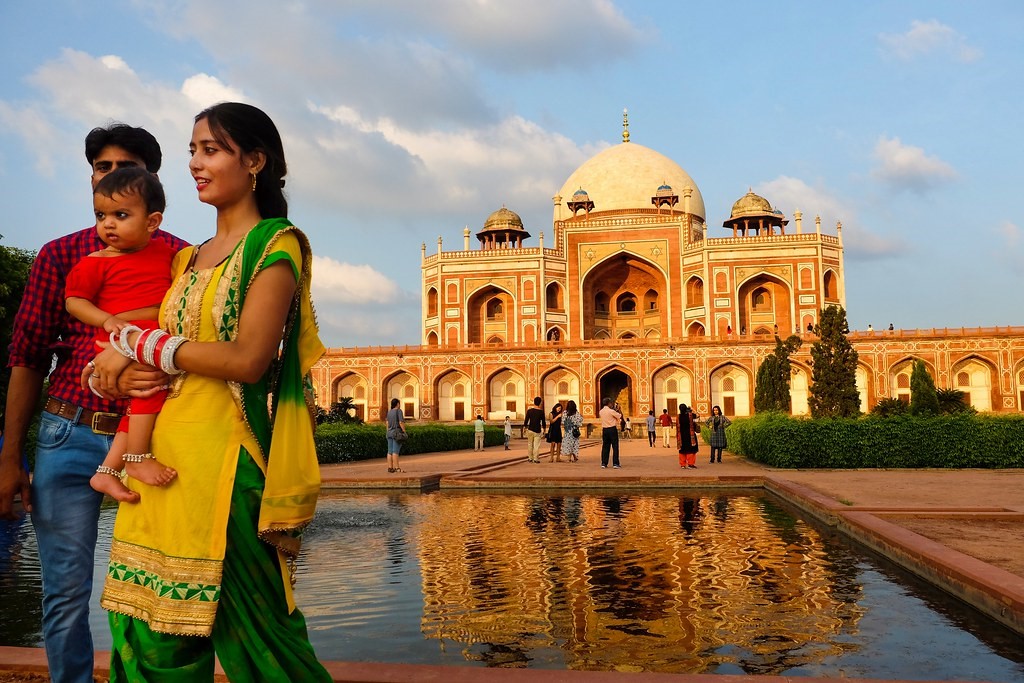
Past, Present and Future:
The Immigrant Stories That Sustain Us
[dropcap] I[/dropcap]f you grew up in India you will remember the magic of myths and folklore which was passed on to you by your grandparents, loving aunts and grand-aunts and their loquacious helpers. There were stories for all occasions: stories at meal-time, stories at bed-time and even stories for monsoon evenings. Stories for sad times, and stories for happy times.
As you grew up and left home, either for further studies, to find work or to get married, you haphazardly packed these childhood tales into your suitcases, in-between the spice boxes and the photo albums and the clothes. And then you forgot about them. Until you yourself became a parent – in a new land, in uncharted waters.
Looking to bring up your own children and safeguard them, you hunted for a talisman which would make them brave, have heart and always be resilient. And you remembered those long-forgotten tales and rummaged through the suitcases of your mind to reprieve the lives of kings and queens and stories of selfhood and courage.
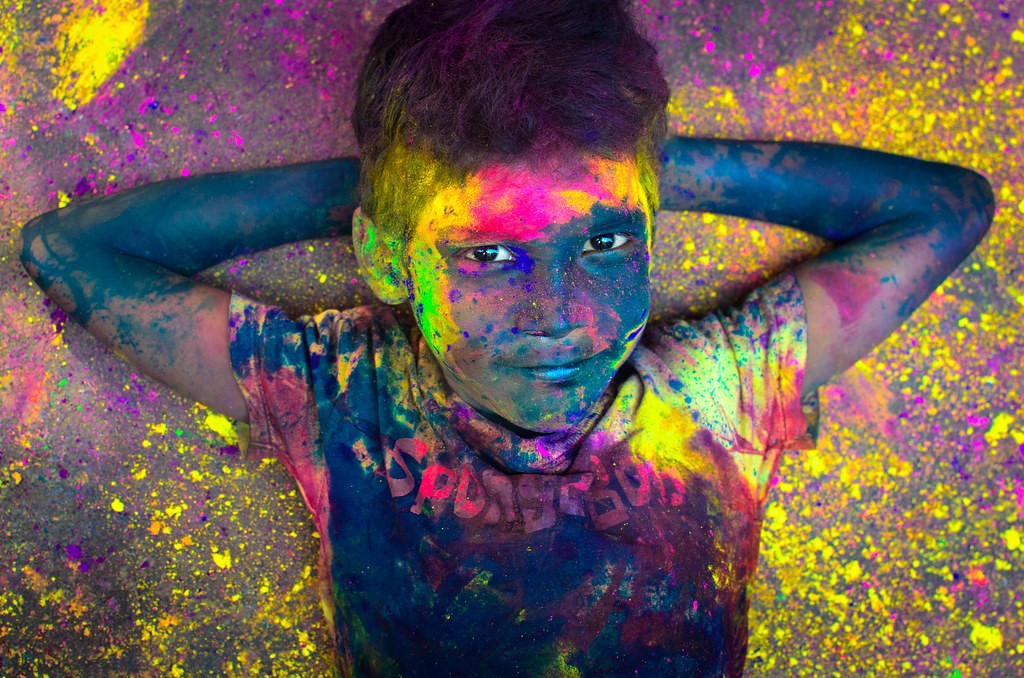
[dropcap]P[/dropcap]arents repeated tales from the Mahabharata and the Ramayana and the Panchantatra; shared poems and songs which had delighted them in their own childhood and called for the Amar Chitra Katha comics, Chanda Mama and Kahani from home for children growing up in a world of American television and cinema, of books which never showed any Indian characters.
One person who has lived in both these worlds is Chitra Banerjee Divakurni, noted writer-poet and the immigrant world’s storyteller-in-chief. An immigrant herself, she has become the balladeer of the Indian Diaspora, chronicling the struggles, the losses and the tales of reinvention and redemption.
She has put into words what millions of immigrants would find hard to articulate, especially the dilemmas faced by women who move from the confines and traditions of home into the brave new universe outside. ‘Arranged Marriage’, her first book of short stories won the American Book Award, and the PEN Josephine Miles Award for fiction. Indeed, Divakaruni takes her feminist beliefs off the printed page into real life too. She is the co-founder of Maitri, a women’s advocacy group in California and has worked for many years with women in situations of abuse.
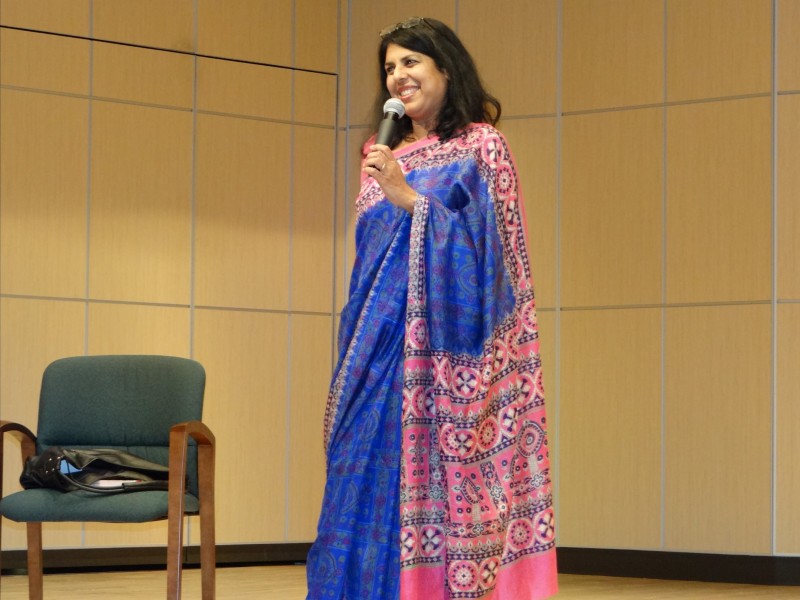
[dropcap]D[/dropcap]ivakaruni came to the US in 1976, as a student, and earned a Master’s degree from Wright State University in Dayton, Ohio, and later, a Ph.D. from the University of California, Berkeley.
“My maternal grandfather–the only grandparent I had–was a great storyteller,” she recalls. “ I certainly credit the evenings he spent telling me tales from the epics with igniting my interest in characters from the Mahabharat & Ramayana, who later appear in my novels ‘Palace of Illusions’ and ‘ Forest of Enchantment.’”
Divakaruni, growing up, read a lot of Bengali authors – “I remember reading Rabindranath Tagore (we had his complete works) and Sharatchandra, Ashapurna Devi and Bibuhtibhushan Bandopadhyay (whose novel Pather Panchali made me weep as I read and re-read it).”
In her school library she read English books from Dickens and Thackeray to ‘Lord of the Rings.’ She also read a lot of Enid Blyton but had a love-hate relationship with her as she grew older: “I loved her stories and characters–but they were all set in England. I wanted adventure books set in India. That may have been a latent reason for me writing children’s books later that had Indian characters as heroes in them.”
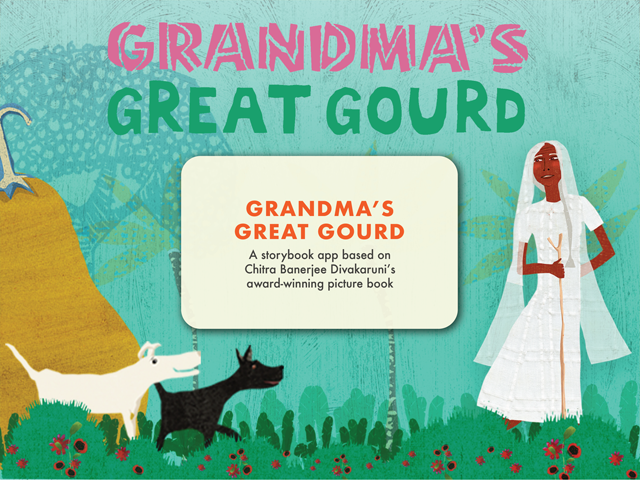
[dropcap]B[/dropcap]esides her many novels, Divakaruni has written books for children, ‘Neela: Victory Song,’ ‘The Conch Bearer’, ‘The Mirror of Fire and Dreaming’ ‘Shadowland’ and ‘Grandma’s Great Gourd’. The books also promote universal values through an Indian lens, such as patriotism in Victory Song and compassion and courage in The Conch Bearer which was also read/taught in many schools. “When I made school visits, I noticed that South Asian students in the class felt additional empowerment as they were considered authorities on the culture depicted in the book!” she said. She believes it’s important for children to see themselves and their culture portrayed in a complex and positive manner. “It is very important for all of us as humans to be validated through our presence in art.”
For young women growing up in America, Divakaruni’s protagonists in her novels hit home. What is she trying to pass on to young girls and women through your novels and short stories? “I want my Indian and Indian American readers to learn about their history and culture. I want young women of all backgrounds to empathize with my heroines, whom I have tried to make into complex personalities, a mix of positive and negative traits. I want them to see women who face trouble and problems of many kinds but don’t give up or break down.”
Many of the young Indian-Americans growing up here have become writers themselves of children’s books, bringing much needed Indian-American stories to their children growing up here. Interestingly these new writers have taken on the legacy of their parents and grandparents but also added their American heritage to it, building a bridge between the two cultures. At the same time, these American born Indian writers also seem to be making feminism, gender-based equality, multiculturalism and BLM a part of the narrative for these children’s books.
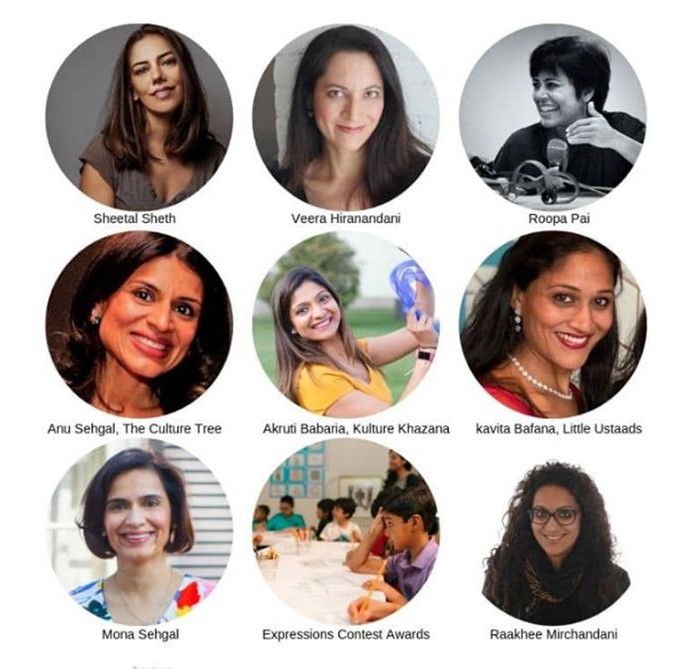 [dropcap]A[/dropcap]nu Sehgal is the founder of The Culture Tree, an organization which promotes children’s literature and culture through museums. “As a child growing up in India “I remember spending long nights on our terrace, especially when we used to have electricity outage for hours and there was nothing else to do but tell stories and share experiences,” she says. ‘I got very different type of stories from both my parents, since they had different religions and grew up in different parts of India. I also loved attending festivals and performances such as the Ramleela, where art/dance/music/performance culminated.
[dropcap]A[/dropcap]nu Sehgal is the founder of The Culture Tree, an organization which promotes children’s literature and culture through museums. “As a child growing up in India “I remember spending long nights on our terrace, especially when we used to have electricity outage for hours and there was nothing else to do but tell stories and share experiences,” she says. ‘I got very different type of stories from both my parents, since they had different religions and grew up in different parts of India. I also loved attending festivals and performances such as the Ramleela, where art/dance/music/performance culminated.
Culture Tree organized children’s authors and books at last year’s IAAC Literary Festival There was a superb line-up of Indian-American authors who through their children’s books address issues of roots and growth, racism and identity. All these authors grew up in a very different America and are finding positive answers for their own young children in a changing country.
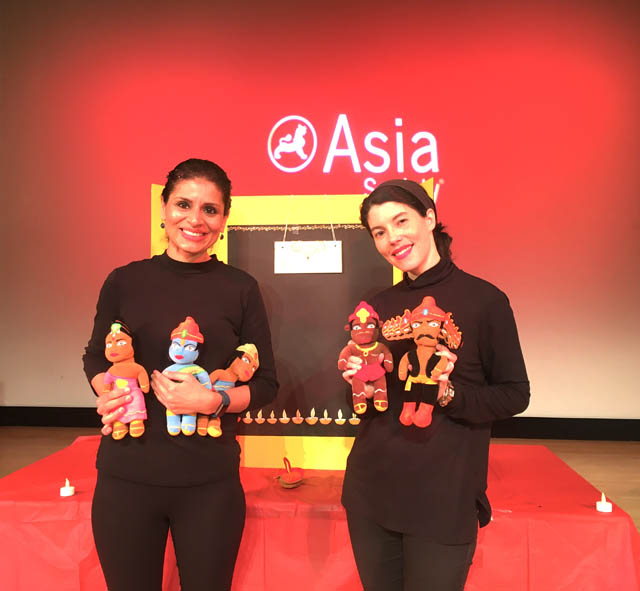
[dropcap]T[/dropcap]he authors included Veera Hiranandani whose book The Night Diary s a 2019 Newbery Honor Award winner and was named a 2018 Best Book of the Year by The New York Times; noted actor Sheetal Sheth with her first children’s book Always Anjali which won the 2019 Purple Dragonfly Book Award Grand Prize. Authors from India also gave American children a taste of their homeland: Kavita Bafana introduced Namaste Jaipur, part of the Namaste Series of books; Roopa Pai, author of the 8-part Taranauts, India’s first original fantasy-adventure series for children in English and the award winning The Gita For Children, which was listed by Amazon among its list of ‘100 Indian Books To Read In A Lifetime’.
For young readers there were interactive sessions by Kulture Khazana, Little Ustaads and Culture Tree’s performance of Ramleela through puppets. The festival also had awards for young people in a literary contest about growing up bicultural in America. Children’s literary festivals certainly seem a good idea.
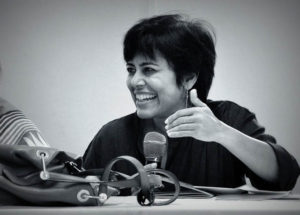
Roopa Pai, who is based in Bangalore, has also created classes for adults and kids where she teaches lessons from ancient texts such as Vedas and the Upanishads. She says, “They are as relevant in the 21st century as they were four millennia ago. Children face the same issues in the schoolroom and the playground as they always have – isolation, inadequacy, powerlessness, peer pressure, the need to conform – and these ancient texts, believe it or not, help them deal with all of these.’
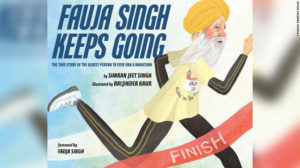
New heroes are also being created by writers who live here. Author and activist Simran Jeet Singh has the book Fauja Singh Keeps Going which tells the inspiring true story of Fauja Singh, who broke world records to become the first one-hundred-year-old to run a marathon. It tells readers about spunk and determination. shares valuable lessons on the source of his grit, determination to overcome obstacles, including a birth defect that prevented him from walking until age 5, and commitment to positive representation of the Sikh community.
Anu Sehgal says “The book is the first children’s book by a major publisher to focus on a Sikh story and produced by an all South Asian team. Our book tour has been featured in several libraries and schools, and the book has even become NYPL bookclub favorite.”
Being brown and proud is the new mantra for first generation Indian-Americans.
Raakhee Mirchandani, an Award-winning writer, editor and pediatric cancer crusader, wrote Super Satya Saves the Day inspired by her own spunky daughter Satya, a cancer survivor.
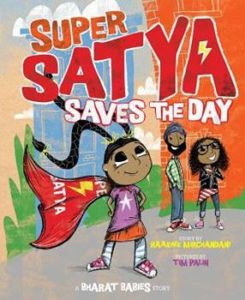
As she told diversebooks.com in an interview, “When my husband Agan first saw the cover art for Super Satya, he couldn’t believe that a dad like him was going to be on the cover of a children’s book. What he meant was that he couldn’t believe a dad with a turban was going to be on a book cover. So while I set out to write this story for Satya, I suppose I wrote it for Agan and myself too. We didn’t have books like this as children and seeing the incredible response around this one, from kids of varied ethnicities and genders, well, it really opens my heart.”
Her new book ‘Hair Twins’ explores with love, the hair tales of her husband and her daughter. The illustrations are deliciously and proudly brown.
Brown women are now a feisty and ever-increasing club, proclaiming their heritage. Mirchandani has recently started ‘Brown Mom’ a podcast about desi culture in which she talks with other women like her.
[dropcap]I[/dropcap]ndeed, we are increasingly moving from print books to digital and audio books, and podcasts, apps and games. Sandhya Nankani, founder of Literary Safari started out as a children’s author, influenced by the tales she heard from both her grandmothers, one in Pune, India and the other in Ghana, Africa. She heard stories of her Sindhi heritage, of the Sikh gurus and tales from the Ramayana.
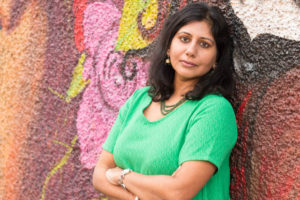
Nankani holds an undergraduate degree in History and a Masters in International and Public Affairs from Columbia University. She is a founding member of KIDMAP (Kids’ Inclusive and Diverse Media Action Project), a grassroots coalition of children’s media professionals committed to representation in digital content for children.
Literary Safari is an independent children’s media studio and consulting firm, and creates inclusive media for children and families. It has produced award-winning books, apps and games and has clients like UNESCO, Sesame Workshop, Scholastic and PBS.
[dropcap]I[/dropcap]ndeed times have changed from those tentative beginnings when there was no literature for Indian-American children. The world is full of stories and there are now so many different ways of telling those stories – orally, through print, online, videos, podcasts and games. New innovations are being made all the time. As Nankani explains with the Literary Safari recording safari, Chitra Divakaruni ‘Grandma’s Great Gourd’ can be personalized by a grandmother or a parent actually recording it in their own voice and in their own language so that a child can re-watch an animated replay of the story but in the voice of her own grandma or mother.
“I think what technology does beautifully is allow for joint engagement for parents, caregivers and kids in a different generations to gather around in the same way around a story that perhaps time and space doesn’t allow,” she says. “ Kids when they read a story they like they go back to it over and over again, so now they could replay it in their mother’s or grandmother’s voice.”
While Indian values are important to these writers, so are universal global values. The Story Seeds Podcast created by Nankani matches kids and their story ideas with storytellers who grow their “story seeds” into original short stories embracing different cultures and communities. Says Nankani, “I think identity helps us, but I think identity also divides us.”
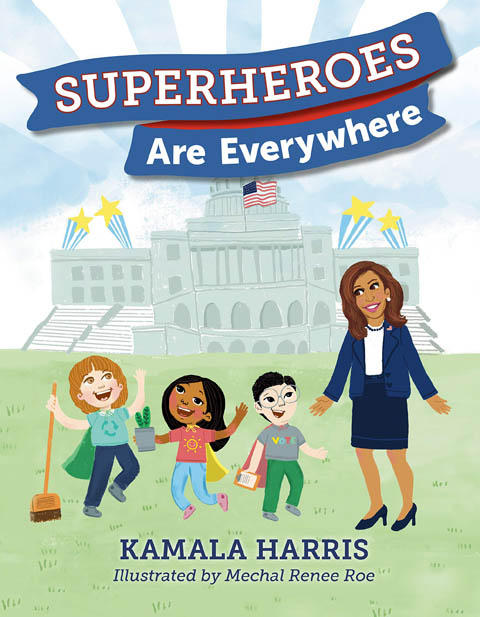
[dropcap]I[/dropcap]ndian-Americans will continue to mix the past and present and tell stories for the next generation, urging them on to a promising future and blended and multicultural families will be part of the mix. After all, the biggest inspiration is Kamala Harris – she too has written a children’s book, “Superheroes are Everywhere!” She proves that someone with the name of Kamala Devi can go all the way to the White House.
(C) Lavina Melwani
This article first appeared in Khabar


2 Comments
From Mom to Ammie – how exciting and rewarding that must have been!
Tori Roy via Instagram
Thank you for shining a light on this 👏 Children’s literature from India is a new field with a lot of potential – lot of hope. As an Asian parent raising a cross cultural daughter with a voracious appetite for literature and reading – one missed quality books for children written by Indian authors in English. When we stumbled upon a historical nonfiction on Indian princesses from ancient dynasties at our favorite Barnes & Noble – my child took an immediate liking to Princess Jahanara. Imagine my delight when I became Ammie from Mom ☺️